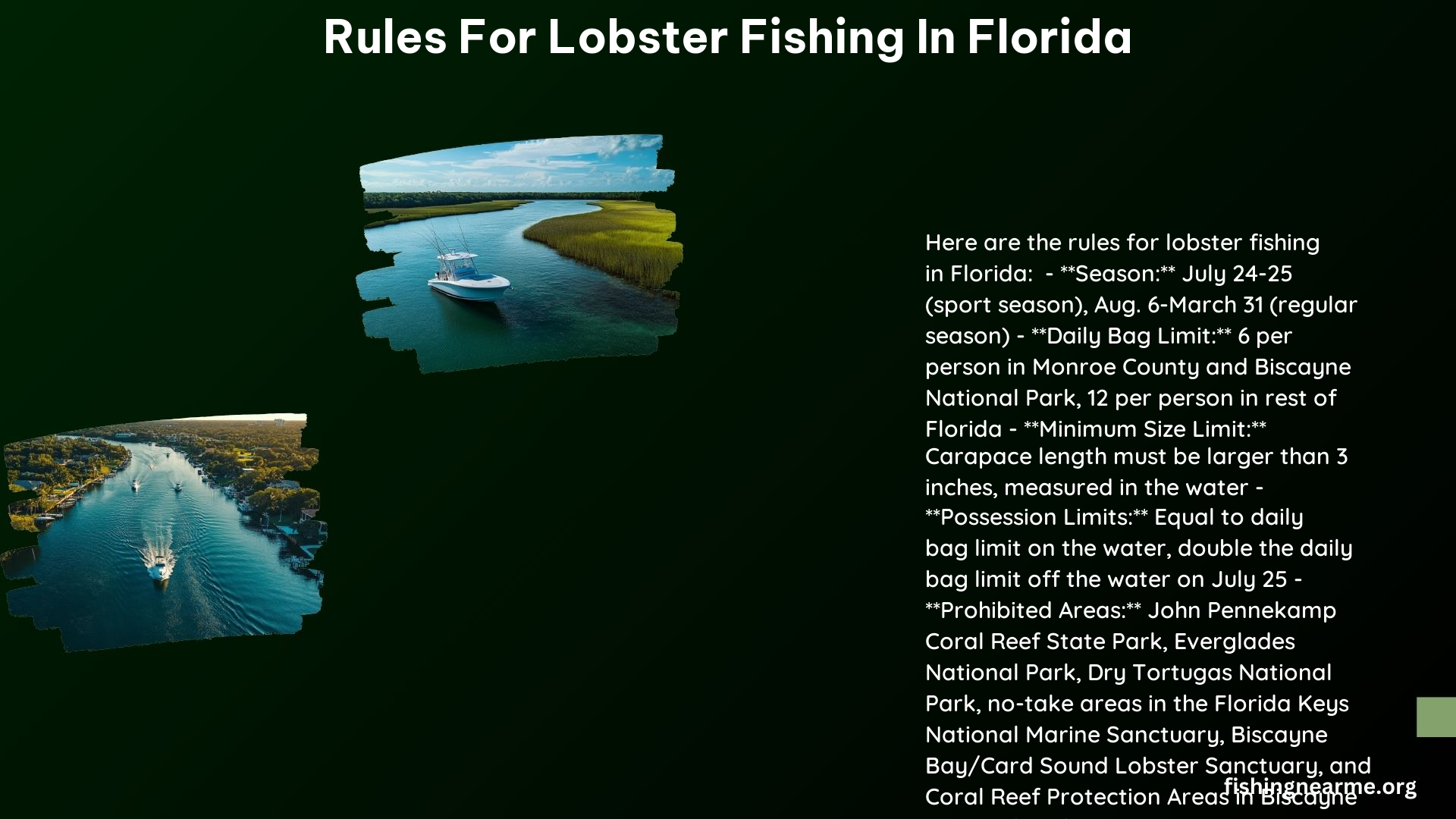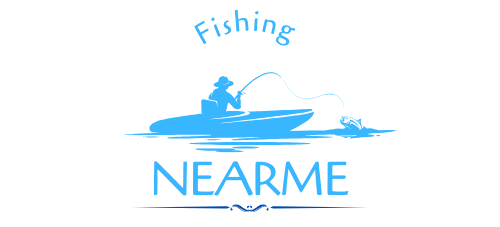The rules for lobster fishing in Florida are designed to ensure the sustainability of the spiny lobster population and provide a fair and enjoyable experience for recreational anglers. Whether you’re a seasoned lobster hunter or a newcomer to the sport, it’s essential to familiarize yourself with the regulations to avoid penalties and protect the delicate marine ecosystem.
Lobster Fishing Seasons
- Mini-Season: The mini-season takes place on the last consecutive Wednesday and Thursday of July each year. In 2024, the mini-season will be held on July 24-25.
- Regular Season: The regular lobster fishing season runs from August 6 to March 31.
Daily Bag Limits

- Monroe County and Biscayne National Park: The daily bag limit is 6 lobsters per person.
- Rest of Florida: The daily bag limit is 12 lobsters per person.
Minimum Size Limits
- Carapace Length: The carapace (the hard upper shell) must be larger than 3 inches, measured while the lobster is in the water.
- Tail Length: The tail must be longer than 5 ½ inches.
Night Diving Restrictions
- Monroe County: Night diving is prohibited during the sport season.
Prohibited Harvesting Areas
- John Pennekamp Coral Reef State Park: Lobster harvesting is prohibited during the sport season.
- Everglades National Park: Lobster harvesting is prohibited at all times.
- Dry Tortugas National Park: Lobster harvesting is prohibited at all times.
- Biscayne Bay-Card Sound Lobster Sanctuary: Lobster harvesting is prohibited at all times.
- Florida Keys National Marine Sanctuary: Lobster harvesting is prohibited in no-take areas.
License and Permit Requirements
- Recreational Saltwater Fishing License: A valid recreational saltwater fishing license is required for all lobster harvesters.
- Lobster Permit: A separate lobster permit is also required for recreational harvesters.
Gear Restrictions
- Prohibited Devices: Devices that can puncture, penetrate, or crush the lobster’s exoskeleton or flesh are prohibited.
- Artificial Habitats: Harvesting lobster from artificial habitats is prohibited.
Other Prohibitions
- Egg-Bearing Lobsters: Harvesting or possessing egg-bearing lobsters is prohibited.
- Separating Tails: Separating lobster tails from the body while in or on the water is prohibited.
Penalties
- Undersized Lobsters: Possession of undersized lobsters can result in up to 60 days in jail and a $500 fine.
Local Regulations
- Monroe County: Local rules prohibit lobstering nearshore in unincorporated Monroe County and certain municipalities.
- Florida Keys National Marine Sanctuary: Specific regulations apply for the sanctuary.
Navigating the rules and regulations for lobster fishing in Florida can seem daunting, but understanding these guidelines is crucial for responsible and sustainable harvesting. By familiarizing yourself with the season dates, size limits, gear restrictions, and prohibited areas, you can ensure a successful and legal lobster fishing experience while contributing to the long-term health of the spiny lobster population.
Remember, it’s your responsibility as a recreational angler to stay informed and comply with all applicable laws and regulations. Enjoy your lobster fishing adventures, but do so responsibly and with respect for the marine environment.
Reference:
- Florida Fish and Wildlife Conservation Commission. (n.d.). Spiny Lobster. Retrieved from https://myfwc.com/fishing/saltwater/commercial/spiny-lobster/
- Monroe State Attorney’s Office. (n.d.). Lobster Regulations. Retrieved from https://keyssao.org/185/Lobster-Regulations
- Florida Keys National Marine Sanctuary. (2018). Regulations for Recreational Harvest & Lobster Information for Monroe County, Florida. Retrieved from https://nmsfloridakeys.blob.core.windows.net/floridakeys-prod/media/archive/regs/mc_lobster.pdf
- Florida Fish and Wildlife Conservation Commission. (n.d.). Spiny Lobster. Retrieved from https://myfwc.com/fishing/saltwater/recreational/lobster/.
